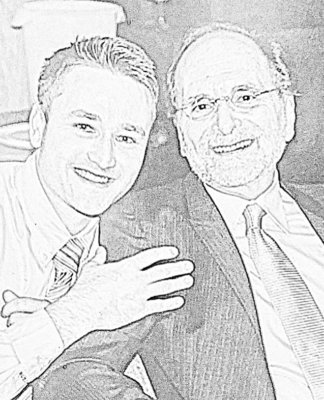Moving on can help you get over what has to be left behind.
A person might be considered on the rebound if he or she becomes involved in a relationship that shortly follows the ending of a previous one. Those on the rebound are assumed to be distressed, shamed, angry, or sad. Consequently, their emotional availability is questioned, as is their capacity to be devoted to a new partner or make good decisions in choosing one. A person on the rebound is not necessarily emotionally unavailable, however, potential new partners, as well as some rebounders themselves, seem to have a lot of anxiety about such circumstances.
If you are dating someone who is rebounding, you may wonder if he or she is capable of emotional attachment or if you are, instead, simply a substitute for love that was lost. You may also be concerned that his or her neediness, rather than actual interest or excitement, might determine the connection with you. Certainly there are cases where a fear of being without a partner, rather than genuine attraction and emotional connection, motivates someone to immediately enter into a new relationship.
Those on the rebound may experience shame and consequently express anger and resentment toward their previous partner. Such negative emotions regarding a previous partner do maintain a tie to them. Anger toward an ex-partner or a wish to get back at them is not the opposite of love and attachment: The opposite would be neutrality or indifference or relief. A negative attachment with a old partner may interfere with the attachment to a new one, as well as put a current partner in the uncomfortable position of competing with the ghost of what remains of the past relationship and wondering if the new partner’s interest in, or excitement about, the new relationship is enough to provide fulfillment.
In contrast, some potential partners on the rebound do not bring up the relationship that recently ended, nor do they expose any emotions surrounding the dissolution. A partner’s failure to openly discuss a previous partner does not necessarily represent an indication of a continued romantic attachment. In such circumstances it is often the new partner whose anxiety about the attachment leads them to focus on the previous relationship of the person with whom he or she is involved, especially when the prior relationship is very recent history.
The rebound relationship, it is believed, takes up the space that was left by the previous relationship and provides both stability and distraction from loss rather than a working through. According to this way of thinking, a person should “get over” the loss of a relationship before moving on to the next one, which negates the potential for healing and learning that occurs within the contrast of a new relationship. A rebound relationship may mitigate the hurt, shame, and pain of a break-up. Nevertheless, when a person loses a connection, it is through connecting that recovery takes place.
Focusing on someone new, according to the limited research on the subject of rebound relationships, can help a person recover from a break-up.1 This does not necessarily mean that the new relationship is valued less than the previous one. In fact, the new relationship can prove to have far greater worth than the previous relationship since it is through the comparison of need satisfaction that fulfillment is judged. Time between relationships is not necessary for psychological well-being. People need connection, and moving on can help you get over what has to be left behind.
(For information about my books, please see my website: marylamia.com)
References
1Spielmann, S., Macdonald, G., & Wilson, A. (2009). On the rebound: focusing on someone new helps anxiously attached individuals let go of ex-partners. Personality and Social Psychology Bulletin, 35, 1382-1394.


 As clinical psychologist and psychoanalyst I work with adults, adolescents, and preteens in my Kentfield, California private practice. I am also a professor at the Wright Institute in Berkeley, California. Teaching the public about the psychology of human behavior has been something I've done for over 35 years. For nearly a decade I hosted a weekly call-in talk show, KidTalk with Dr. Mary, on Radio Disney stations, and have provided opinions in many media interviews and discussions.
My books include:
As clinical psychologist and psychoanalyst I work with adults, adolescents, and preteens in my Kentfield, California private practice. I am also a professor at the Wright Institute in Berkeley, California. Teaching the public about the psychology of human behavior has been something I've done for over 35 years. For nearly a decade I hosted a weekly call-in talk show, KidTalk with Dr. Mary, on Radio Disney stations, and have provided opinions in many media interviews and discussions.
My books include: 




















